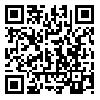BibTeX | RIS | EndNote | Medlars | ProCite | Reference Manager | RefWorks
Send citation to:
URL: http://rehabilitationj.uswr.ac.ir/article-1-486-en.html
Objective: This research was aimed to investigate the relation between non-verbal imitation and naming ability and effect of non-verbal motor imitation exercises on ability of naming in autistic children.
Materials & Methods: In the first phase of this research which was done comparatively, 22 autistic and 22 normally developed children were selected conveniently and their ability of naming and non-verbal imitation was examined. In the second phase, which was an experimental-interventional study with a pretest-posttest and control group design, the autistic children were assigned into two matched groups by balanced randomized method. Then non-verbal motor exercises intervention executed in experimental group for 60 days (one hour a day). During this period the control group received routine educational program. Before and after intervention, naming ability of two groups was assessed by naming test. Data were analyzed by Independent T- test and Variance analysis.
Results: Research findings showed statistically significant difference between autistic group and normal group in naming ability (P<0.001). In autistic group, there was a positive correlation between naming ability and non-verbal imitation ability (r=0/878). Furthermore findings showed significant difference in naming ability between control and experimental group after intervention (P<0.001).
Conclusion: This finding reveals that non-verbal motor imitation has a positive correlation with naming ability and non-verbal imitation exercises increases the naming ability in autistic children.
Received: 13/07/2010 | Accepted: 13/10/2015 | Published: 13/10/2015
| Rights and permissions | |
 |
This work is licensed under a Creative Commons Attribution-NonCommercial 4.0 International License. |





